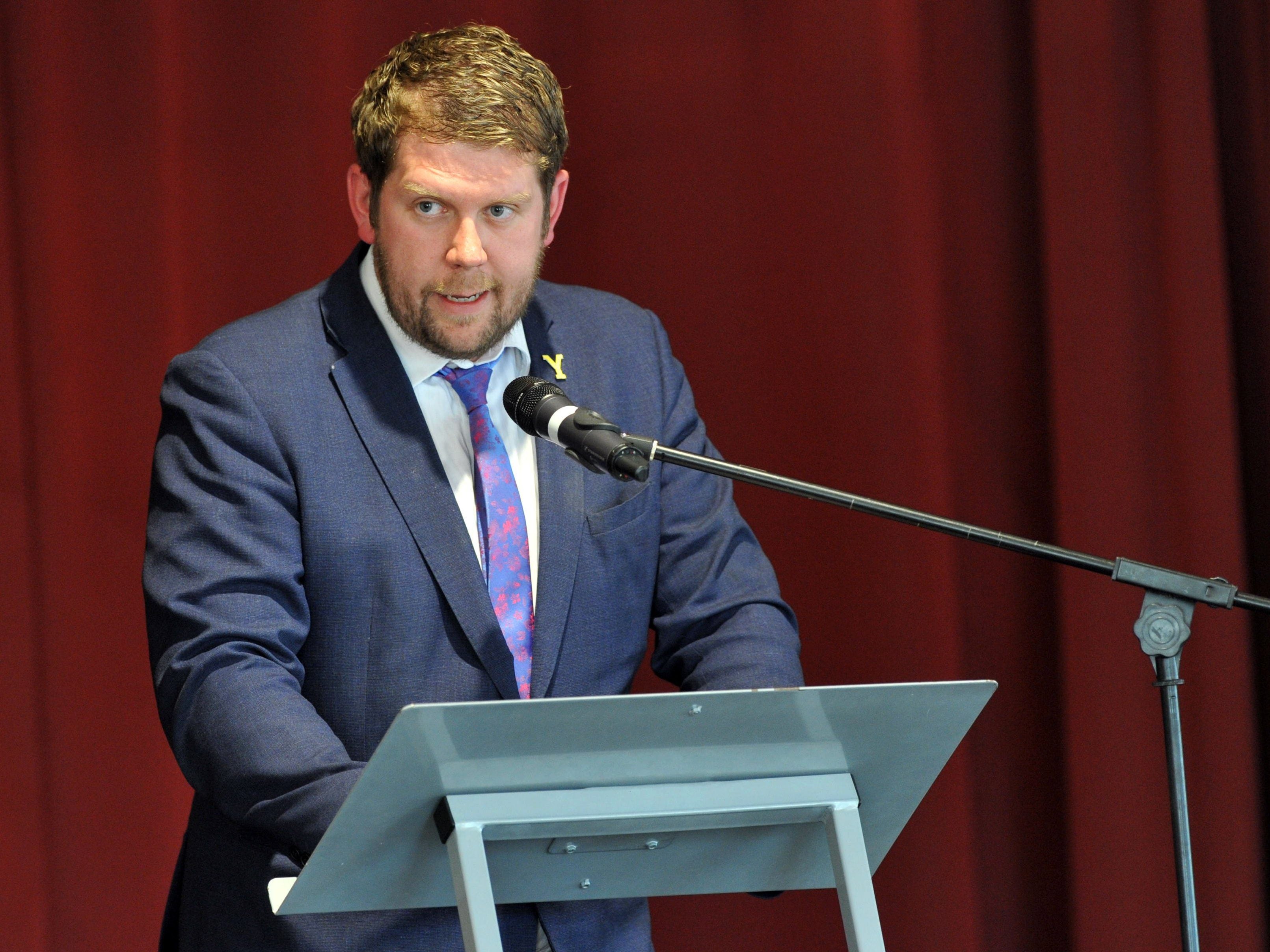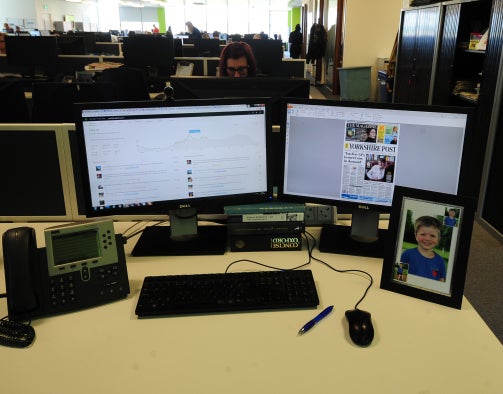
Yorkshire Post editor James Mitchinson, 38, spoke to Press Gazette about the hiding he got when he left banking for journalism, his early dreams to become an Army Officer and the “disease” of sexism in newsrooms…
How long have you been a journalist?
I joined the profession as a trainee in October 2002.
Where did you study journalism?
Norton College, Sheffield. Fast track, on-the-job. But studying is one thing, where I learned journalism is an altogether different thing: from being offered Woodbines during the interval inside smoke-filled church halls at late-night parish council meetings as a trainee, to scouring data and utilising information access laws to expose corruption and lies latterly. Studying and learning journalism never stops, I’m pleased to say.
Where did you catch you first break?
The British Army gave me my first break. I was dead set on becoming an Army Officer and was accepted onto the Army Officer Selection Board at Leighton House in Westbury, aged just 18.
For a coal miner’s son who’d barely left the confines of the safety of the village boundary, it was daunting and haunting in equal measure but ultimately, with hindsight, defining.
I was advised that whilst I’d passed the physical assessments with flying colours, my aptitude tests could have been better and was told to get off to university to broaden my horizons. So I did, and never looked back.
What was your first paying journalism job?
Trainee reporter on the Worksop Guardian. I’d fallen into retail banking with Natwest after university and after a few little promotions over 18 months I was earning what I thought was a fortune and driving a brand new Ford Focus.
When I told my dad I’d given up £20,000 a year plus bonuses along with his ambition for me to be a bank manager to pursue my ambition for me to be a journalist, accepting £8,000 a year to do so, he gave me a right old hiding.
What made you want to become a journalist?
Mum. As long as I can remember she’s been almost completely deaf. But she was and still is a voracious news fiend. The only telly in the house was forever tuned into Ceefax and Teletext, and because of her hearing impairment we always had subtitles on.
Without realising it, my own mother invented rolling news bulletins and I was the unwitting guinea pig, exposed to it in full fuzzy definition, plus subtitles, whenever I was in the house.
What is it you enjoy most about journalism?
Making a difference: whether it’s impacting upon Westminster to listen to the people we represent or helping just one person. We once adopted a tiny little charity called Autism Angels – please look them up and give generously – to raise money for them at our business awards event.
Their tears of joy and gratitude as that room raised thousands for them – whilst also in tears at the uplifting stories this little charity told on the night – is what it’s all about. People helping people.
Away from work, which newspapers/TV news/radio news do you read/watch/listen to, and why?
The Radio 4 Today programme is essential, almost throughout. Starting with the early morning dog walk around the fields; the only real moment of quiet reflection in any day.
The Times: its journalism and digital production are exquisite. I rarely miss a word of anything Henry Winter writes.
Talksport: Adrian Durham’s heady concoction of mischievous antagonism and knowledge of his brief are irresistible to me. For similar reasons James O’Brien who has the ability to run rings around the powerful whilst gently holding up a mirror to the marauding misled.
What is the one thing you couldn’t do without as a journalist, and why?
Scepticism. On occasions it makes you look like a bitter and twisted tit whilst leading you down bramble-strewn cul-de-sacs, the only way out of which is a red-faced mea culpa and an apology.
But more often it keeps you safely distant from the disingenuous and will have you tracking the scents of stories that someone somewhere wants suppressed.
What piece of work are you most proud of, and why?
The Yorkshire Post’s Sheffield Trees investigation: this was and is one of the most complex networks of multi-agency public authority cluster cock-ups that I’ve ever witnessed, and working alongside Chris Burn – one of the most outstanding journalists in the profession today – to unravel it has been a privilege.
Such is the mess we’ve uncovered that when I presented the findings to Environment Secretary Michael Gove he agreed to meet us in Sheffield immediately. Doing this type of journalism under duress from the very organisations you are examining requires perseverance and conviction as well as skill.
What’s your biggest mistake/regret in your career?
Not spending more time reporting. I took a promotion to the subs bench way too soon and unwittingly gave up the thing that I’m passionate about: writing.
What’s the most outrageous thing you’ve witnessed in a newsroom?
Sexism. Something I thought had left the industry long ago. A senior sub telling a relatively senior news editor that her arse looked good that day. The news editor advised me it was fine. She could hold her own and didn’t want anything to come of it.
The sexist dinosaur left the organisation quickly after. I was apoplectic. The sad thing is, I still don’t think we’ve beaten this particular disease. Call it out, folks. Call. It. Out.
If you could change one thing about the UK media industry today, what would it be?
The gender and diversity balance of sports desks. I’ve been an editor for a relatively short period, I grant you, but every title I’ve edited has had men and usually white men writing about and editing sports content.
If our brands are going to reflect the modern communities we serve then that has to change and I absolutely put myself in that space.
Any top tips for aspiring journalists?
Take spelling, punctuation and grammar seriously, and I’m talking from reception year at school. Don’t do a tin-pot media degree at a second-rate institution.
Ours is a dwindling industry with demand for jobs higher than ever. Too many individuals submit illiterate applications and I feel sorry for them that they have been let down and even conned out of money by people who haven’t taken the time to teach them the basics properly.
Without those basics, I’d have little faith in someone coping with the pressures of fast-paced digital publishing which still requires exemplary legal and ethical judgement.
Please can you take a picture of your desk and/or newsroom to show people your workspace?

Picture: JPI Media
Email pged@pressgazette.co.uk to point out mistakes, provide story tips or send in a letter for publication on our "Letters Page" blog
